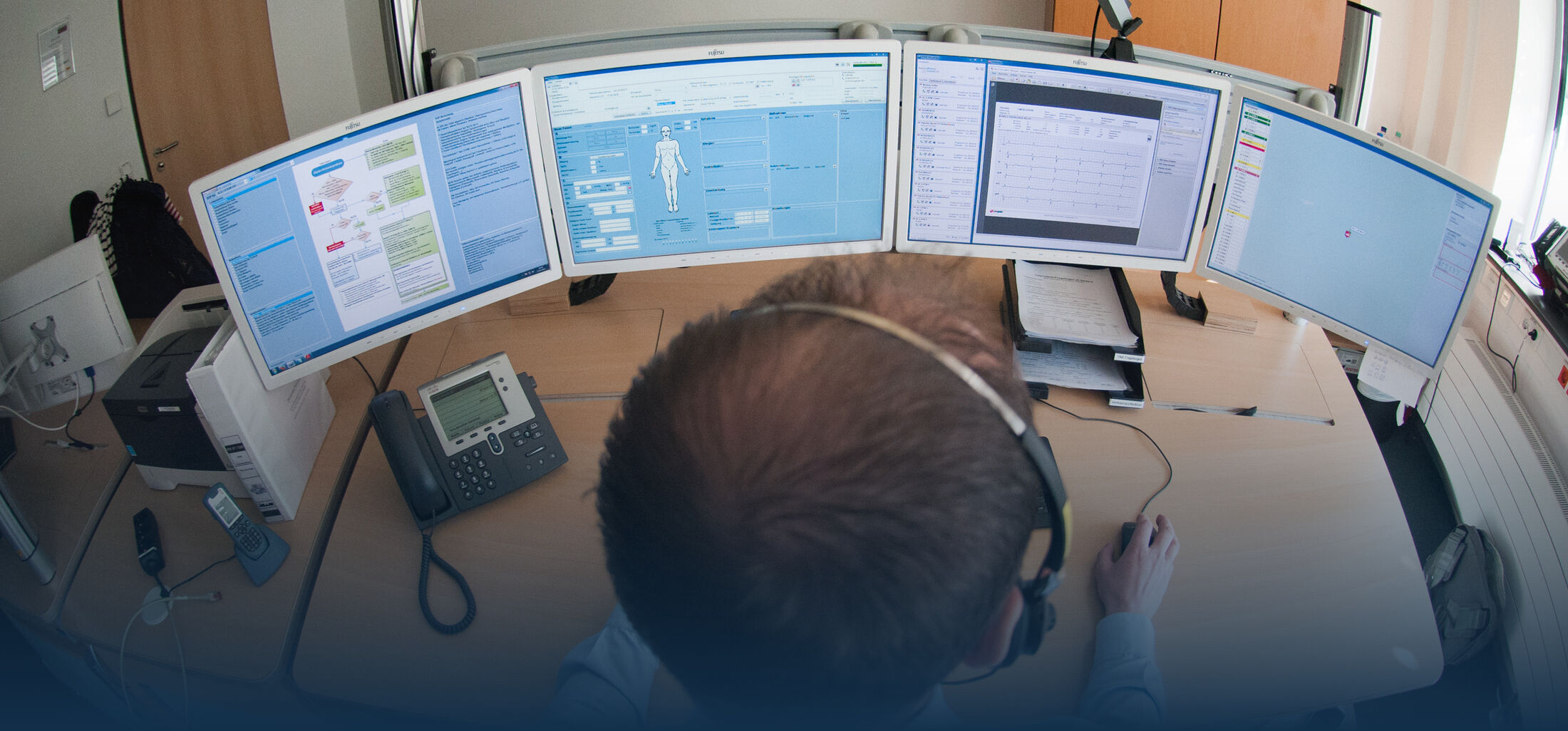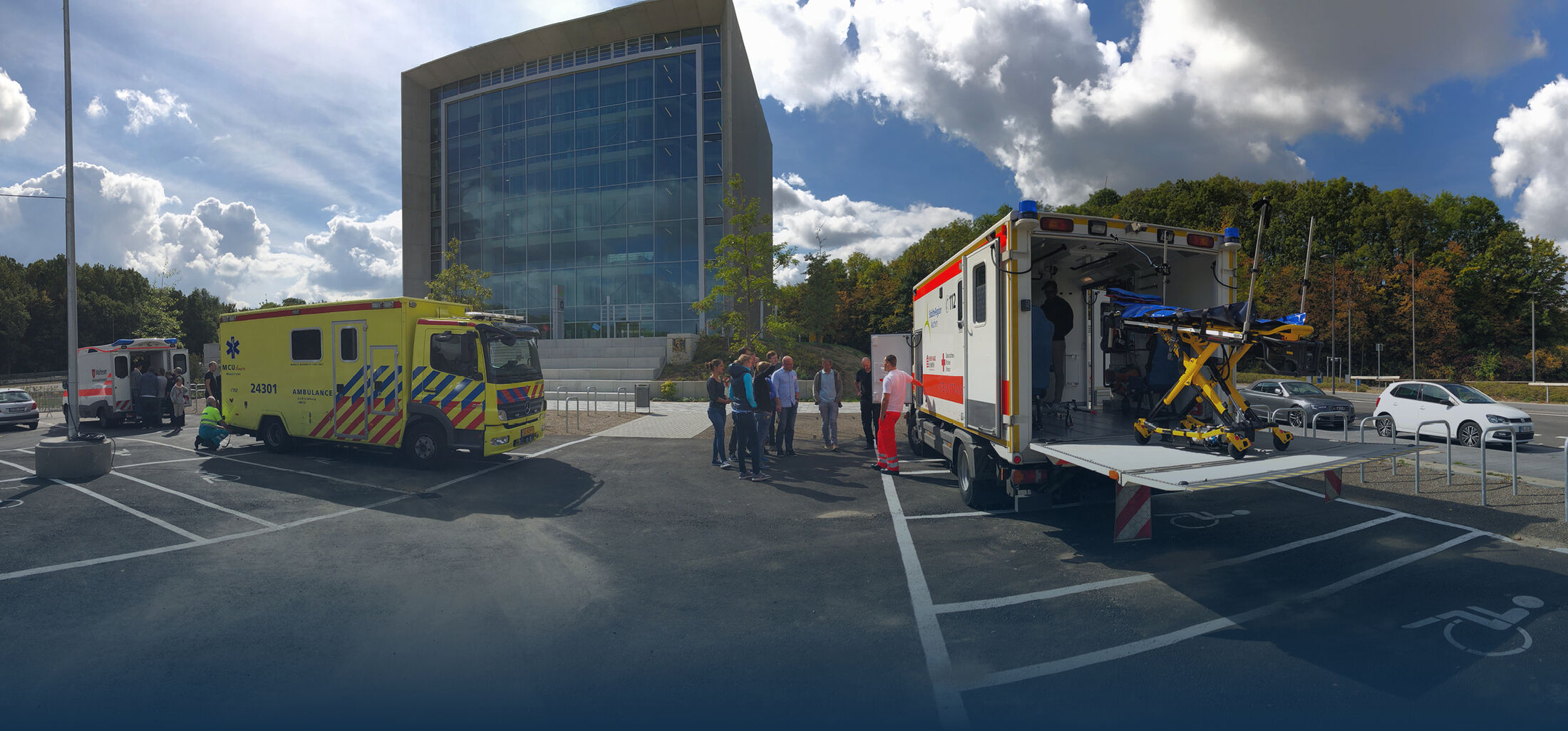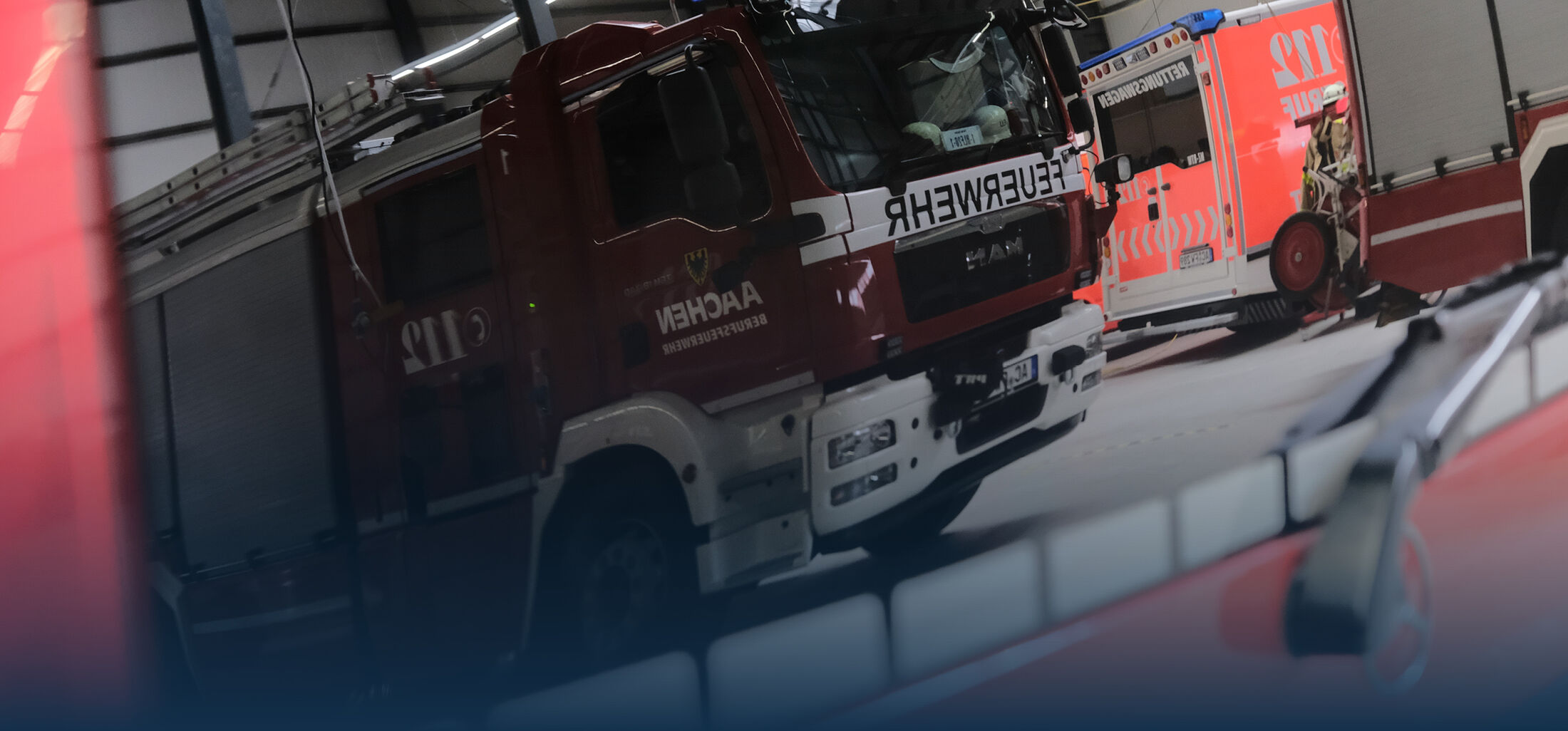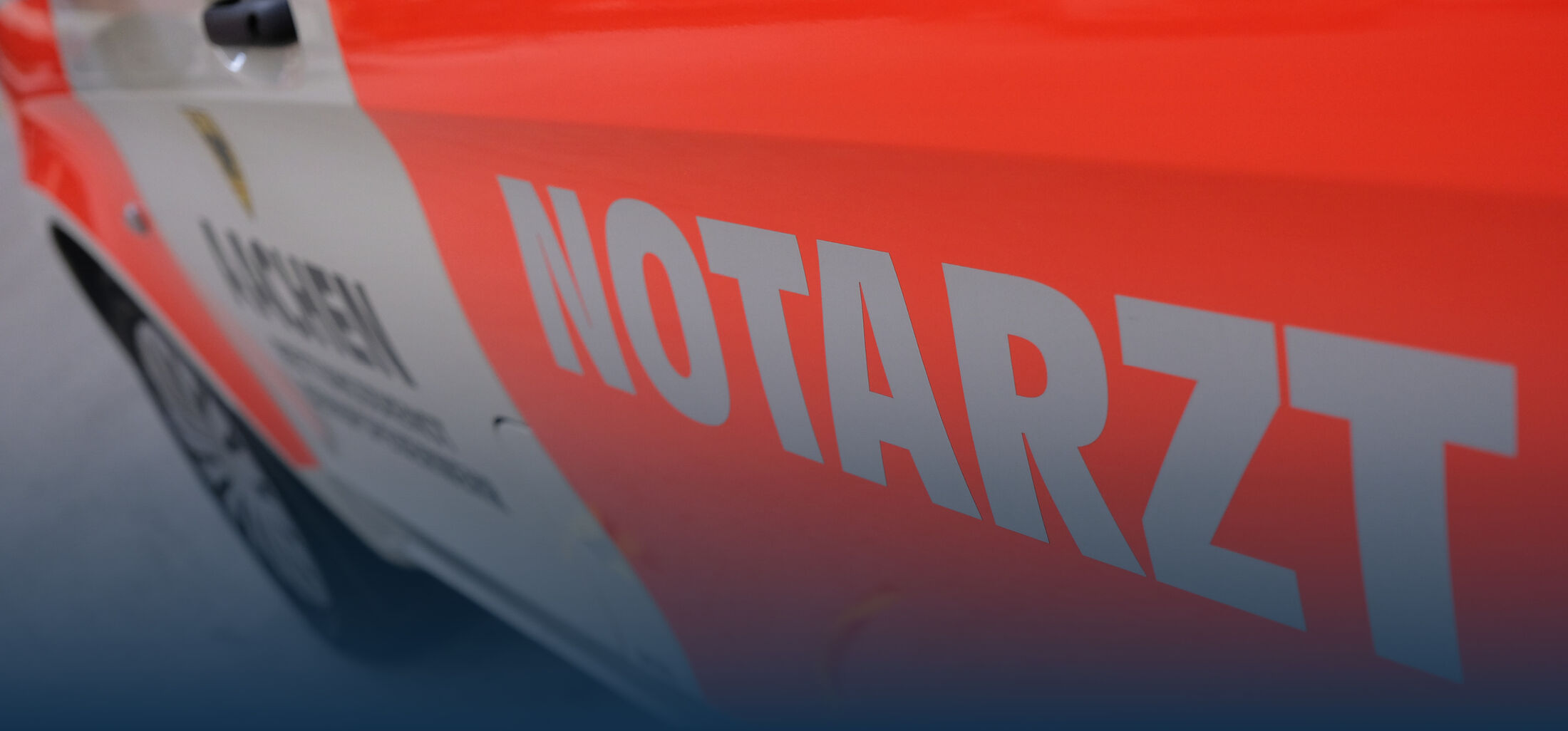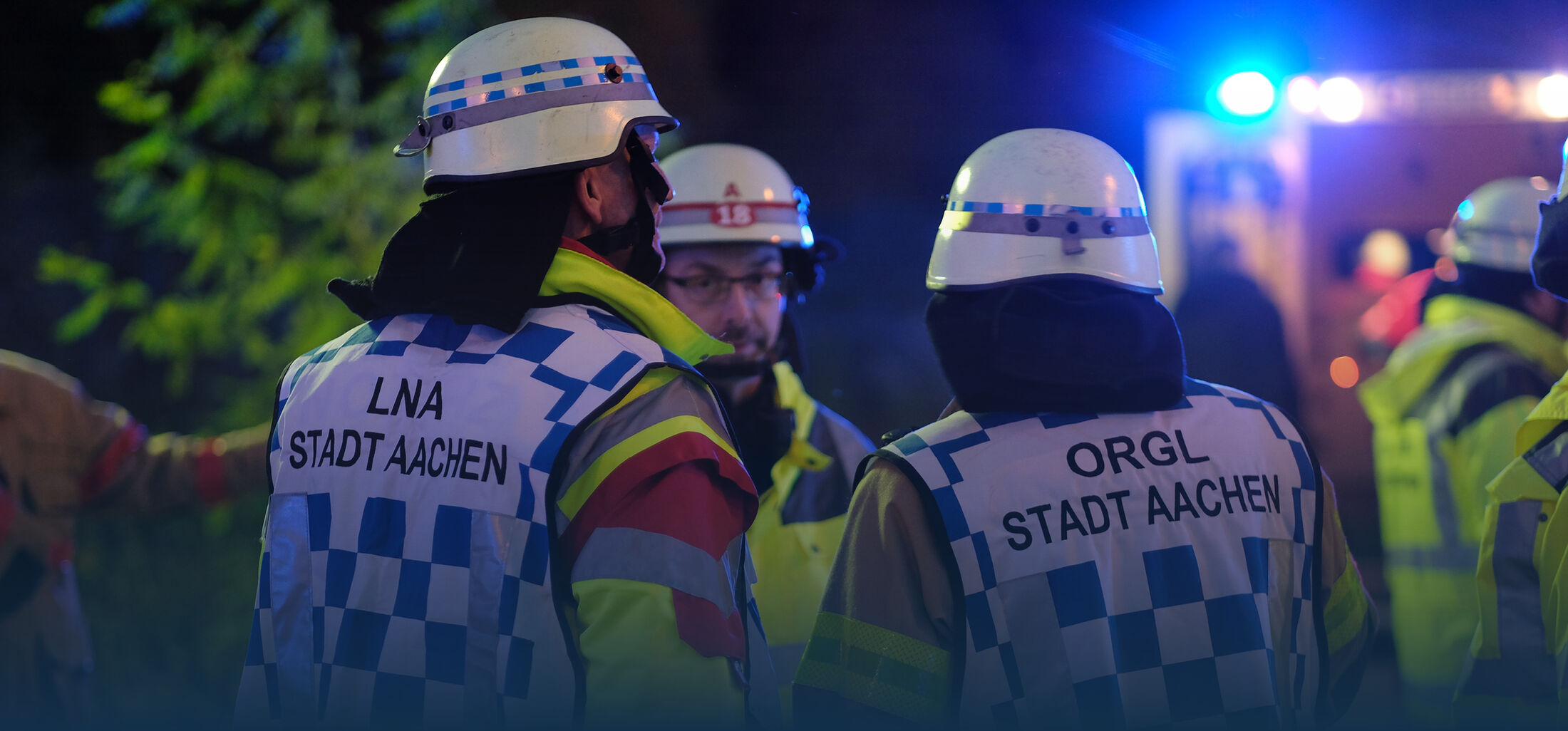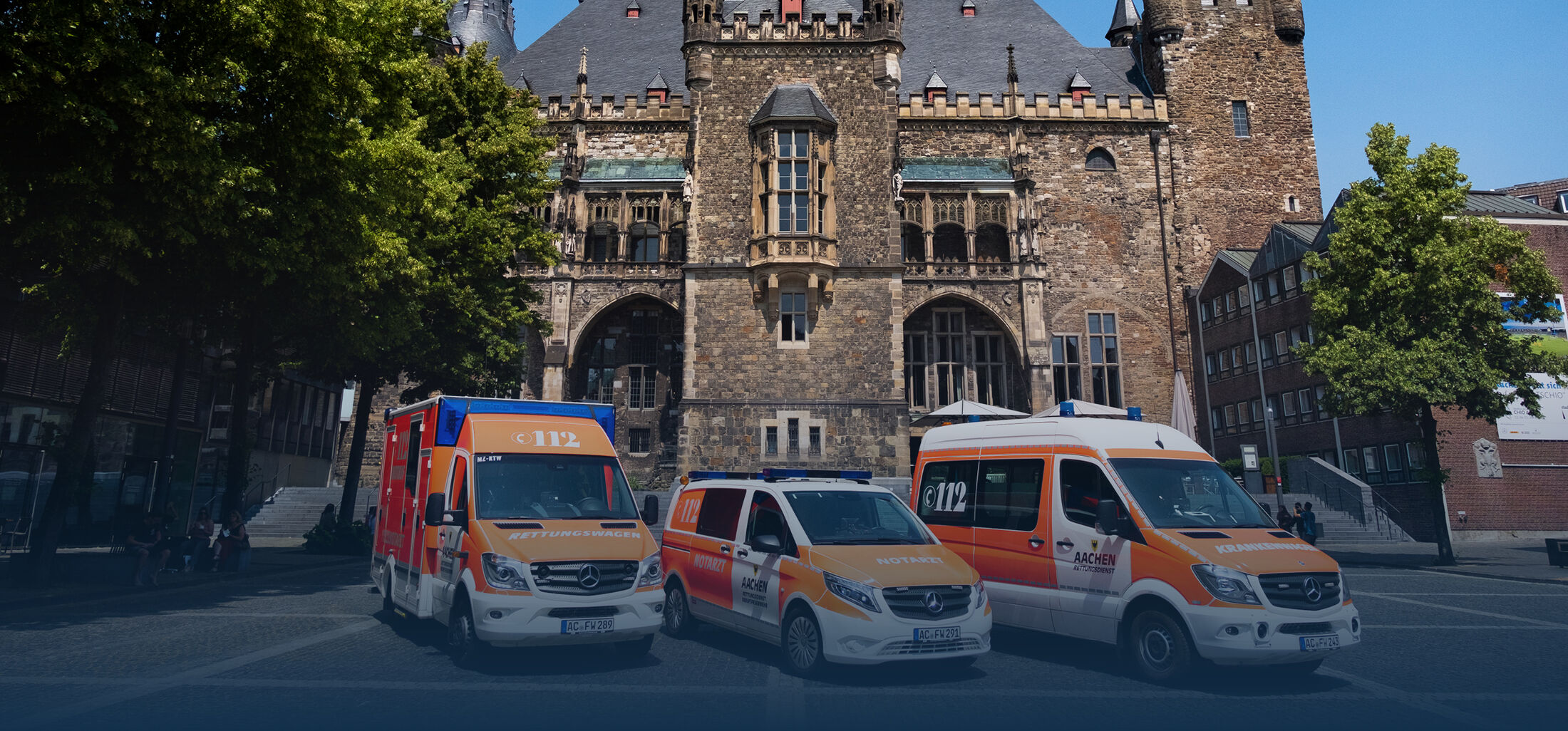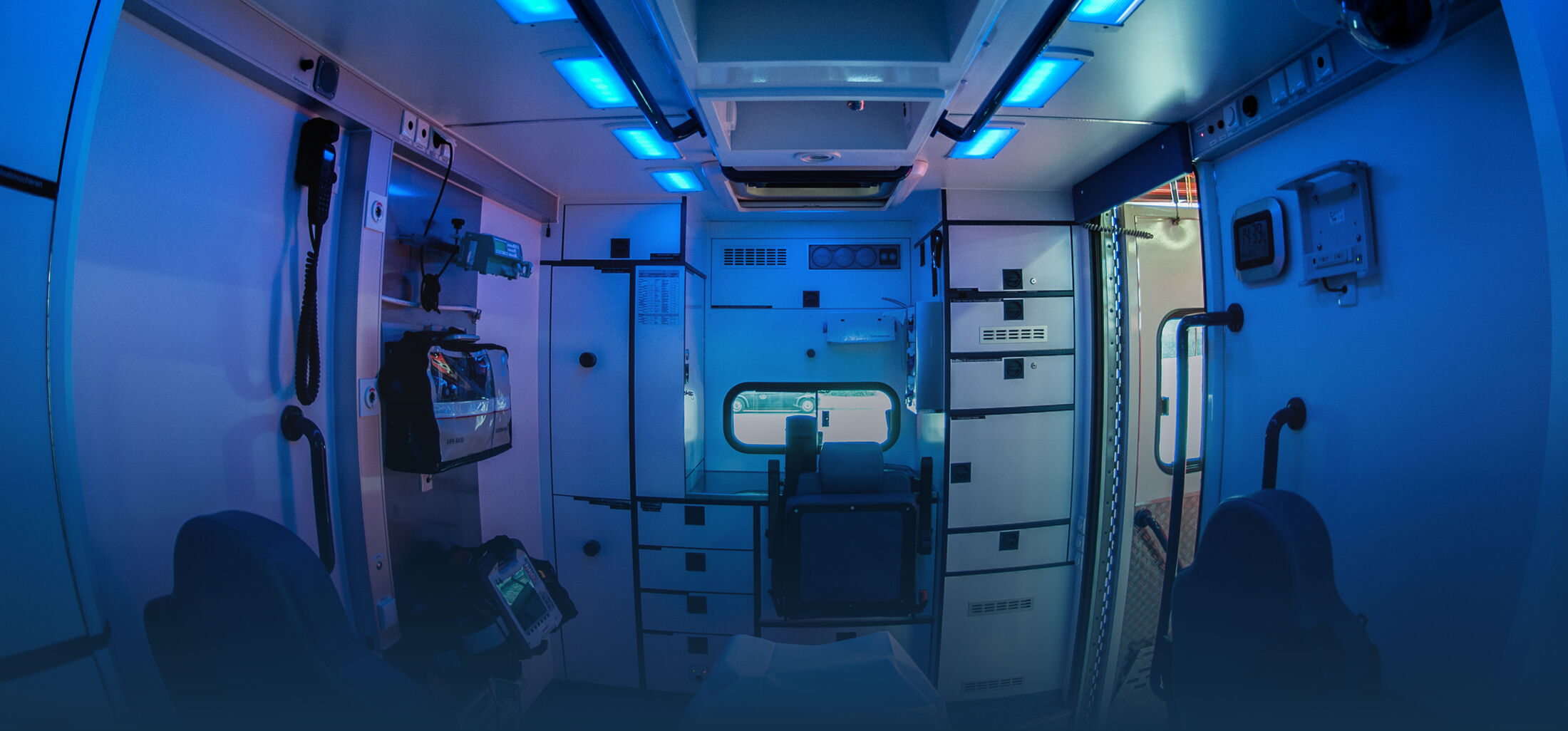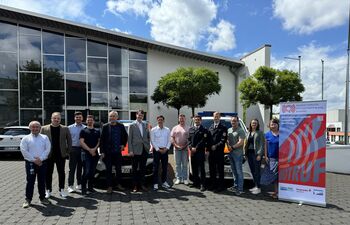Civil security
In Großschadensereignissen ist es entscheidend, Zustandsänderungen von verletzten oder erkrankten Personen frühzeitig zu erkennen, um ihre Überlebenschancen zu maximieren. Das Projekt VitalKITE zielt darauf ab, die Effizienz der prähospitalen Katastrophenmedizin u.a. durch die Entwicklung eines unbemannten Flugsystems, welches Kamera-basiert Vitalparameter von mehreren betroffenen Personen zeitgleich überwacht und eine schnellere Reaktion auf kritische Zustände ermöglicht, zu verbessern. Dabei wird sich an bewährten Technologien, wie die aus dem Projekt FALKE, orientiert und diese weiterentwickelt.
Das Projekt wird vom Bundesministerium für Bildung und Forschung (BMBF) mit einer Laufzeit von zwei Jahren mit Beginn zum 01.05.2024 gefördert. Am Vorhaben VitalKITE (Förderkennzeichen: 13N16952) sind neben der Stadt Aachen, Fachbereich Feuerwehr und Rettungsdienst, Aachener Institut für Rettungsmedizin und zivile Sicherheit folgende Projektpartner beteiligt:
- AuteCare InnovationHub, Uniklinik RWTH Aachen
- Docs in Clouds TeleCare GmbH
Assozierte Projektpartner:
- Deutsche Gesellschaft für Katastrophenmedizin e.V.
- Bundesamt für Bevölkerungsschutz und Katastrophenhilfe
- Malteser Hilfsdienst e.V.
- DRK-Rettungsdienst Städteregion Aachen gGmbH
PREparedness and PAndemic REsponse in Germany
To strategically cope with future pandemic developments, this project aims to develop concepts for the rapid, comprehensive and sustainable use of pandemic management infrastructures.
With the help of results of previous projects and with the participation of all 36 German university hospitals (NUM), as well as institutional partners (e.g. RKI), an optimization of the necessary infrastructure components is being developed.
The Aachener Institute for Rescue Management and Public Safety, as a research section and reference center of the clinical core discipline of emergency medicine, is involved in the creation and implementation of concepts, workflows and instruments in the prehospital and emergency medical context. The goal is the development of quickly applicable and practicable tools/SOPs (Standard Operation Procedures), which can be quickly retrieved and applied nationwide in the event of a pandemic.
ForAn – Research network of German users
The joint project ForAn is a research network coordinated by the German Federal Agency for Technical Relief (THW). The goal of the network is to promote the participation of German users in European security research projects. For this purpose, research needs of users are collected within the network, a workshop program is developed and expertise for project applications is exchanged. ForAn covers all areas of civil security research and is also of interest to universities, research institutions and companies, as they can find suitable users in the network, with an affinity for research for joint project applications.
The Aachen Institute for Rescue Management and Public Safety (ARS) is involved in the project as an associated partner. ForAn (funding code: 13N15766) is funded by the German Federal Ministry of Education and Research (BMBF) for a duration of approximately three and a half years (06/2021 - 12/2024). For more information and a list of project participants, please see the project outline.
The project VirtualDisaster is a new research project funded by the German Federal Ministry of Education and Research. This project is coordinated by the Aachen Fire Brigade. The Chair of Anaesthesiology of the RWTH (tele-EMS system), the Institute of Flight System Dynamics (drones) as well as the Chair of Computer Graphics and Multimedia and TEMA Technologie Marketing AG (Virtual Reality) are involved.
The German Federal Ministry of Education and Research is funding the project in the "Research for Civil Security" programme with approximately 1.1 million euros. Using the latest technology, major incidents are to be depicted in a virtual world in order to be able to manage relief measures more quickly and more precisely. In the event of a major fire or an accident in an area that is difficult to access, 360-degree cameras mounted on drones will record the event, project it into a virtual world so that a tele-operations manager can check the scene of the accident sooner than otherwise possible, alert rescue resources appropriately, and thus support the operations management on site.
Further information on the research project can be found here:
Aircraft assisted management of complex emergency operations (FALKE: Flugsystem-Assistierte Leitung Komplexer Einsatzlagen)
In the case of a mass casualty incident, it is the task of the emergency services to classify the injured persons into different categories. Although most of the emergency services are familiar with the screening algorithms to be used, they are often incorrectly applied in the field. Reasons for this include the distraction and psychological pressure caused by the acute situation.
In order to improve the quality of the inspection, the FALKE project aims to partially automate this process. To this end, a wide variety of sensor technologies (radar, IRT camera, RGB camera) will be installed on an unmanned flight system to record vital data and movement profiles as quickly as possible. Existing inspection algorithms are adapted to the data situation and corrected or confirmed by a tele-medically connected chief emergency doctor. The difficult task of inspection is semi-automated by a quickly generated situation overview, so that early, targeted and life-saving immediate measures can be initiated.
The Aachen professional fire brigade is involved as an associated partner.
Further information can be found here:
The Project “preRESC“ – data based support for efficient and effective planning of resources in rescue services” is a new, innovative research project. It is funded by the Ministry of Economics, Innovation, Digitalisation and Energy, State of North Rine-Westphalia within the funding programme “Digitale Modellregionen in NRW” (engl.: Digital model regions in NRW).
A central goal of this project is assurance of widespread emergency care and adherence to the legal response time within the City of Aachen. To reach this goal, challenges will be analysed, potentials will be identified, and an appropriate algorithm will be developed. This will be realised with a software prototype which will allow for validation of the current demand planning and an optimised tactical-operative planning in favour of a more efficient disposition of resources and a best possible quality of care.
The project “preRESC” is coordinated by the umlaut telehealthcare GmbH. Apart from the project partner professional fire department of Aachen, which is leading two work packages (AP1: literature analyse, extraction of evident analysis factors, AP5: Data acquisition and extraction), the umlaut solutions GmbH is also involved as a project partner.
Click here to find further information about our research project.

TeleSAN - a feasibility study on telemedicine in civil defense
The TeleSAN project investigates the feasibility of telemedicine for civil security purposes. For this purpose, a TeleSAN app was developed that allows access to functions such as telemedicine from different devices. The concept envisages that non-medical personnel will be instructed in treatment by a telemedicine physician and thus also be allowed to perform medical measures under delegation. Through its competence in tele-emergency medicine, the ARS supports this project as an associated partner with its expertise.
